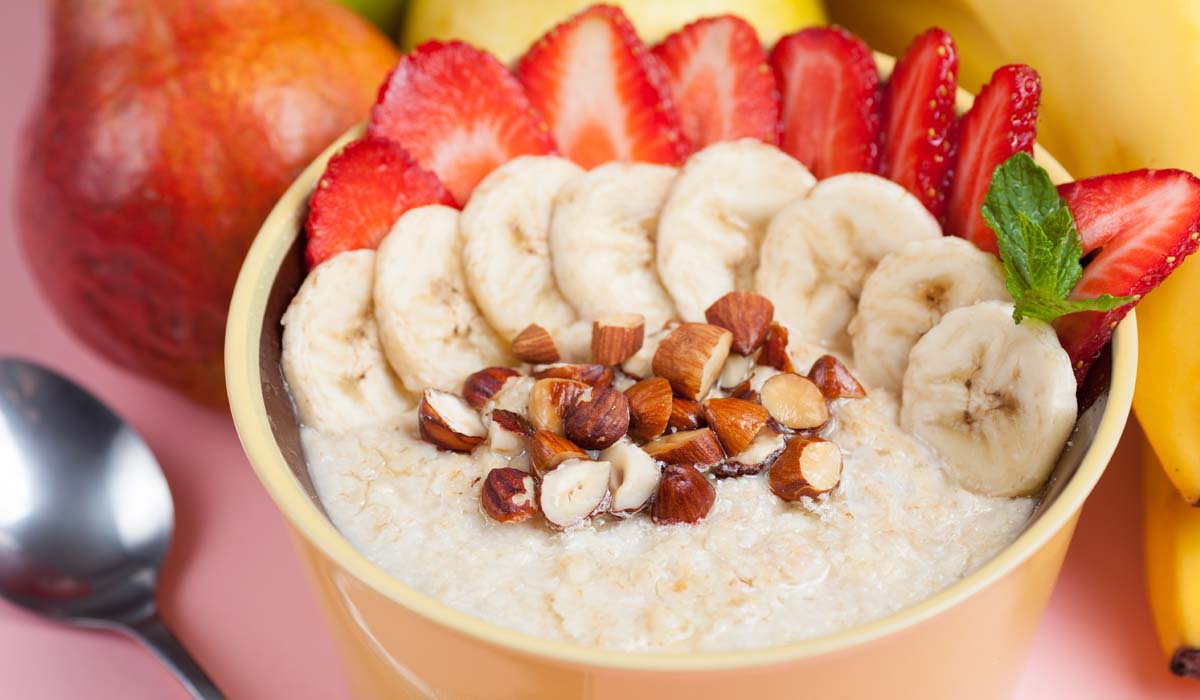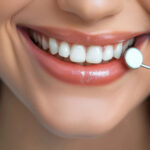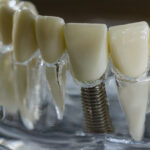What can you eat after getting All-on-4 dental implants? A proper diet following a major procedure is commonly an overlooked area of recovery. The nutrients in the foods that you intake during this stage play a considerable role in supporting the body’s rebuilding properties. In the case following an All-on-4 dental implant, it’s vital to include good eating habits along with the prescribed medication to ensure you get proper healing and successful osseointegration of the implants.
What is an All-on-4 Dental Implant Procedure?
Considered to be one of the most significant innovations in dental technology, an All-On-4 Dental Implant surgery is a type of oral surgery replacing the upper and lower set of teeth with four dental implants designed to provide a more efficient and less invasive approach to patients.
These implant-supported dentures are meant to keep the new set of teeth, known as prosthodontics, stable and robust. Because of the higher bone density, implants are usually placed in the jaw area to keep them in place. Compared to traditional dental implants, All-on-4 procedures are more versatile since they don’t require the same bone density to work effectively.
The procedure mainly benefits patients looking to improve their overall quality of life. It is useful for those suffering from tooth loss or tooth decay as a result of poor dental hygiene. Since All-on-4 surgeries offer natural-looking results at a relatively affordable price, a successful operation has a number of benefits for its patients. Some notable benefits include:
-
-
Boosts Self-Confidence
All-on-4 dental implants give patients natural-looking teeth, improving their appearance and overall self-confidence.
-
Easy to Maintain
Much like when it comes to keeping regular teeth healthy, the All-On-4 implants only require routine brushing and flossing to maintain.
-
Easier to Chew Food
Because of the increased stability once the implants are attached, Patients can experience the feeling of having good support for their new set of teeth, leading to better oral function and oral health.
-
All-on-4 implants have significantly high success and patient satisfaction rates, making them a safe and permanent solution for many patients. The success rate of the procedure averages around 91%, and a significant contributor to this dental restoration is post-surgery care. That’s why dentists highly emphasize the importance of a proper diet and for patients to look after what they’re eating after an All-On-4 Implants procedure.
Guidelines After Getting an All-on-4 Procedure
Much like most major procedures, side effects are expected to happen the days following the procedure. Because All-on-4 implants are put in the jawbone, you might experience different side effects that will subside after a few days and gradually improve in the coming weeks.
After getting an All-on-4 implant, the common side effects to look out for include the following:
-
-
- Swelling
- Bruising
- Discomfort
- Bleeding
- Soreness in the Jaw Area
-
What Can You Eat After Getting All-On-4 Dental Implants: The First Two Weeks

Side effects are customarily felt most during the first few days following the operation. In most cases, this is the time when your jaw will start to swell, making it difficult to talk, eat, or even open your mouth.
Moreover, your mouth and jaw will be too sore to break down food effectively. During this time, it’s best to stick to soft foods or liquid food since they give little to no strain on the jaw.
Below is a list of soft foods you can eat immediately following an operation:
- Oatmeal
- Bananas
- Rice
- Tofu
- Yogurt
- Applesauce
- Broth
- Milkshakes
- Mashed potatoes
- Smoothies
- Milk
Two Weeks – Three Months Post-Surgery
When the swelling and other side effects start to subside, your food options will begin to expand slowly. Though you might not feel the same level of pain and discomfort, the jaw is still healing, and dentists will still recommend refraining from eating hard or crunchy food.
At this point, you can shift your diet from liquid food to soft food. These include a diet with rice, pasta, cheese, pureed vegetables, or yogurt. Additionally, you can also have protein and soft meat like chicken and fish.
Additional Tips to Ensure a Smooth Recovery
Aside from following the diet given by your dentist, you can take note of the following tips below for a better recovery experience after an All-on-4 procedure.
-
Research Ahead on What You Can and Can’t Eat
Preparation is key! Staying ahead of your meals is a great way to know what you should avoid during your recovery.
-
Alert Your Doctor if You Feel Any Discomfort or Severe Pain
While pain and discomfort are expected following your procedure, escalated pain must be relayed to your doctor immediately so they can prescribe the necessary medications to alleviate the pain.
-
Get Plenty of Rest
Rest is an essential part of recovery, especially following an All-on-4 Implant. Refraining from strenuous activity is highly recommended following the procedure. That’s why using the downtime to recover properly with adequate rest can considerably rebuild your energy and physical strength when the doctor gives the go-signal to resume everyday activities.
-
Avoid Eating Spicy Foods
Eating spicy food can cause discomfort and inflammation in your mouth, aggravating the gums and surrounding tissues. The risk of infection can come with inflammation, further slowing down the recovery process.
-
Don’t Overexert Your Mouth and Jaw Area During Recovery
Due to the amount of trauma the mouth will undergo during the All-On-4 procedure, it’s highly recommended not to overexert the mouth by opening it wide and eating crunchy food during recovery.
-
Use a Food Processor or a Blender
Since you’ll be restricted to a liquid or soft food diet, using a food processor can ensure smoother and better food consistency. It also prevents any hard or unrefined pieces from making their way into your mouth.
-
Take Your Prescribed Medicine
Following the procedure, the doctor will prescribe medicine to help recover. Staying on top of the intake schedule is essential to ensure a smooth recovery.
-
Drink Plenty of Water to Keep Hydrated
Staying hydrated is vital for wound healing since water helps transport nutrients and oxygen to the cells in your body, which are needed to repair and regenerate tissue.
Explore Your All-on-4 Dental Implant Options Today!
Life after getting an All-on-4 implant can be rough in the beginning, but following your doctor’s advice and abiding by a soft food diet can make a big difference in speeding up the recovery process!
For all your dental needs, Madison Dentistry LLC has you covered! From regular checkups to sophisticated dental procedures, like the All-on-4 dental implants, Madison Dentistry’s team of medical experts strives to deliver the highest quality of service to its patients without the expensive price tag. Book a consultation with us today!




